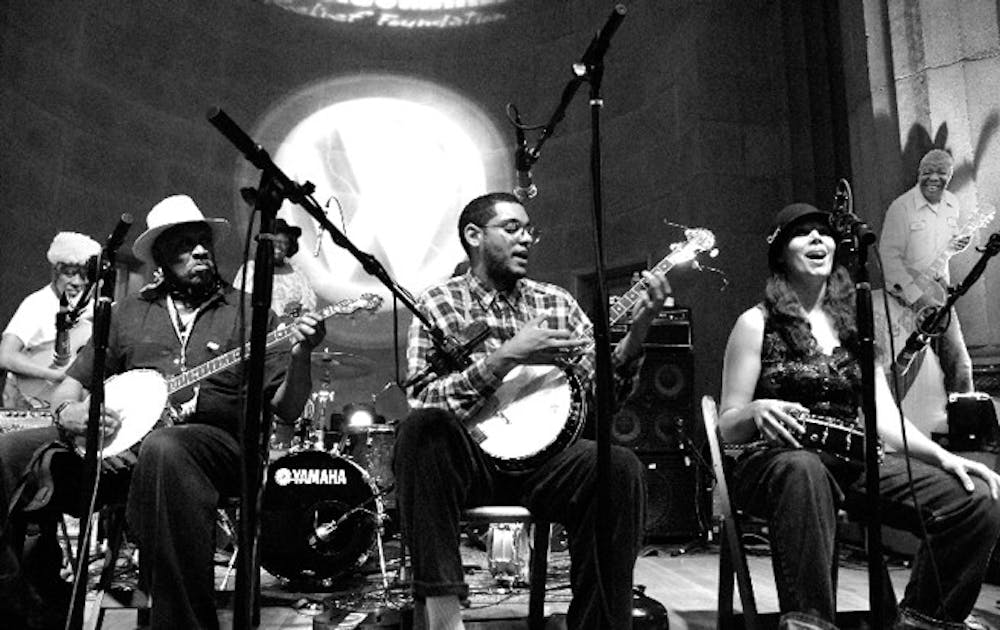In today’s world many older American music traditions have fallen into the background. Southern blues, once one of the most important music genres in North Carolina, is now only rarely acknowledged as a genre by a younger generation of music listeners. The Music Maker Relief Foundation has been working to bring attention back to Southern blues, a genre that has both directly and indirectly inspired many of the styles of music that we hear today, said Tim Duffy, founder and executive director of Music Maker. “Musicians are constantly looking toward the South for inspiration,” he added.
The organization aims to support Southern musicians, not only through finding gigs but also providing transportation, documentation and recording opportunities. Many of the artists supported by this organization are working-class, and few are professional musicians.
“These people are often living off incomes of $5000-$7000 a year and just do not have the means to get their music documented and promoted,” Duffy said. “A lot of these musicians are working-class people that are not even thinking about being [professional] musicians.”
This semester, the Center for Documentary Studies at Duke has partnered with the Music Maker Relief Foundation through a course called Multimedia Documentary. The course allows students with a wide variety of film and documentary skills to create short projects depicting the lives of different musicians involved with the foundation. When the three to five minute videos are complete, Music Maker will utilize these videos on their website to promote the artists’ work to a broader online audience.
“It provides the opportunity for the students to have firsthand fieldwork experience with both the Music Maker foundation and particularly its artists,” said Chris Sims, instructor of the course and web content manager for CDS. “Then the videos that will come out of that will not just be a class project but will also live on the Music Maker Relief Foundation blog and have a life of their own.”
The idea for the collaboration also involved Music Maker employee Whitney Baker, who interned at CDS last year. She saw potential to connect student filmmakers with the blues artists with whom she works.
“We have a lot of really great artists that are local to the area that have really interesting stories to tell,” she said.
The profiled musicians range from 15-year-old Lakota John Locklear from Pembroke to “Ironing Board” Sam, a Chapel Hill resident who has been playing music professionally for more than 55 years. Some have lived in North Carolina for all of their lives, whereas others—such as Ben Payton who raised a family in Chicago—have only recently returned to the South.
Before starting on their projects, the groups of students spent the first five weeks of class studying documentary work and the history of blues. “We spent a lot of time building relationships with our subjects and thinking about how we are representing these musicians,” said senior Stephani Zakutansky, who is focusing on Ben Payton.
Some students in the class have had more practice making documentaries than others. Senior Hannah Colton, a double major in Public Policy and Environmental Science and Policy, noted that a large part of the learning process was experiential.
“It makes us a little nervous to go in without having done this type of interview before and maybe not having the camera skills and editing skills. But [the class] is a really good way to [gain] experience,” she said.
Filming these artists at the Music Maker Studio, in their homes and at gigs, the students capture different parts of these musicians’ lives. They see the pre-show rituals, their interactions with audiences and their home lives. About to edit, Zakutansky and Colton are not quite sure about their videos’ primary focus, but they are working to find the best way to spotlight their artists’ strengths. Zakutansky described Payton’s distinct style and stage presence. She said that he often improvises music to accompany poems that inspire him. Colton hopes to highlight areas of “Ironing Board” Sam’s life outside of his onstage performances such as his pre-show routine and intriguing items from his house.
Both Colton and Zakutansky noted that beyond sharpening their skills in film production the class provided a window into local Southern blues that they would not have otherwise discovered. They both believe that the first weeks of the course helped them tremendously to understand blues music and its musicians.
“As with anything, [having more knowledge about a genre] enriches what you get when you listen,” Zakutansky said. “Having a personal connection to a musician of what a lot of [Music Maker artists], or at least Ben Payton, consider a dying art form is really special.”
Get The Chronicle straight to your inbox
Signup for our weekly newsletter. Cancel at any time.

